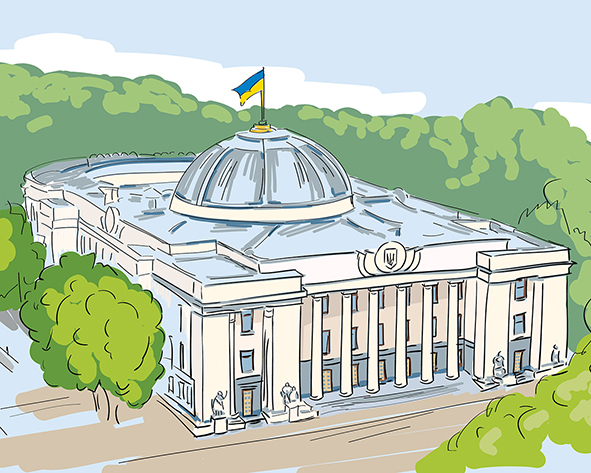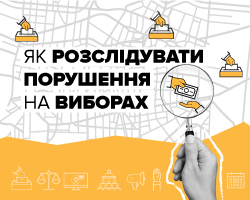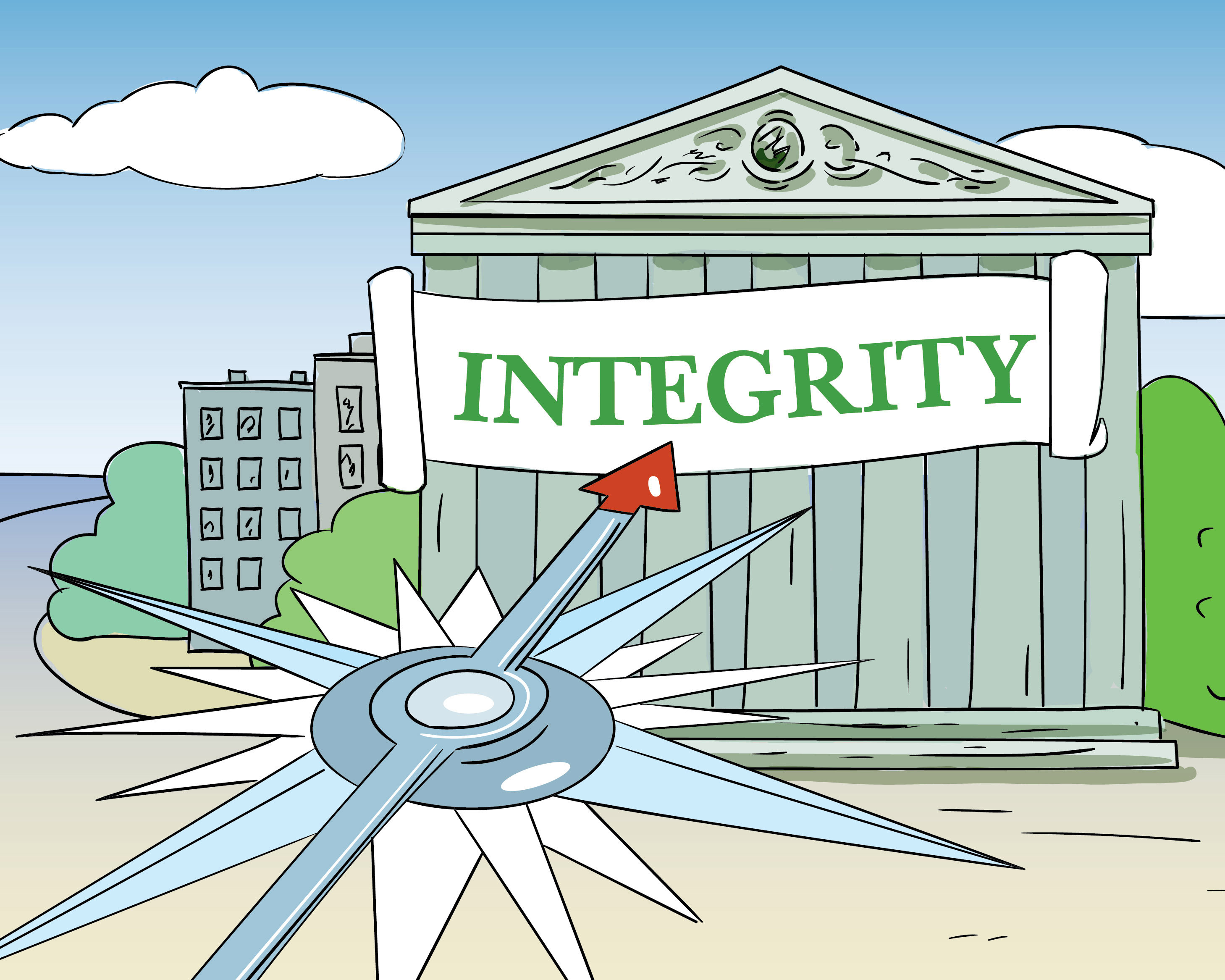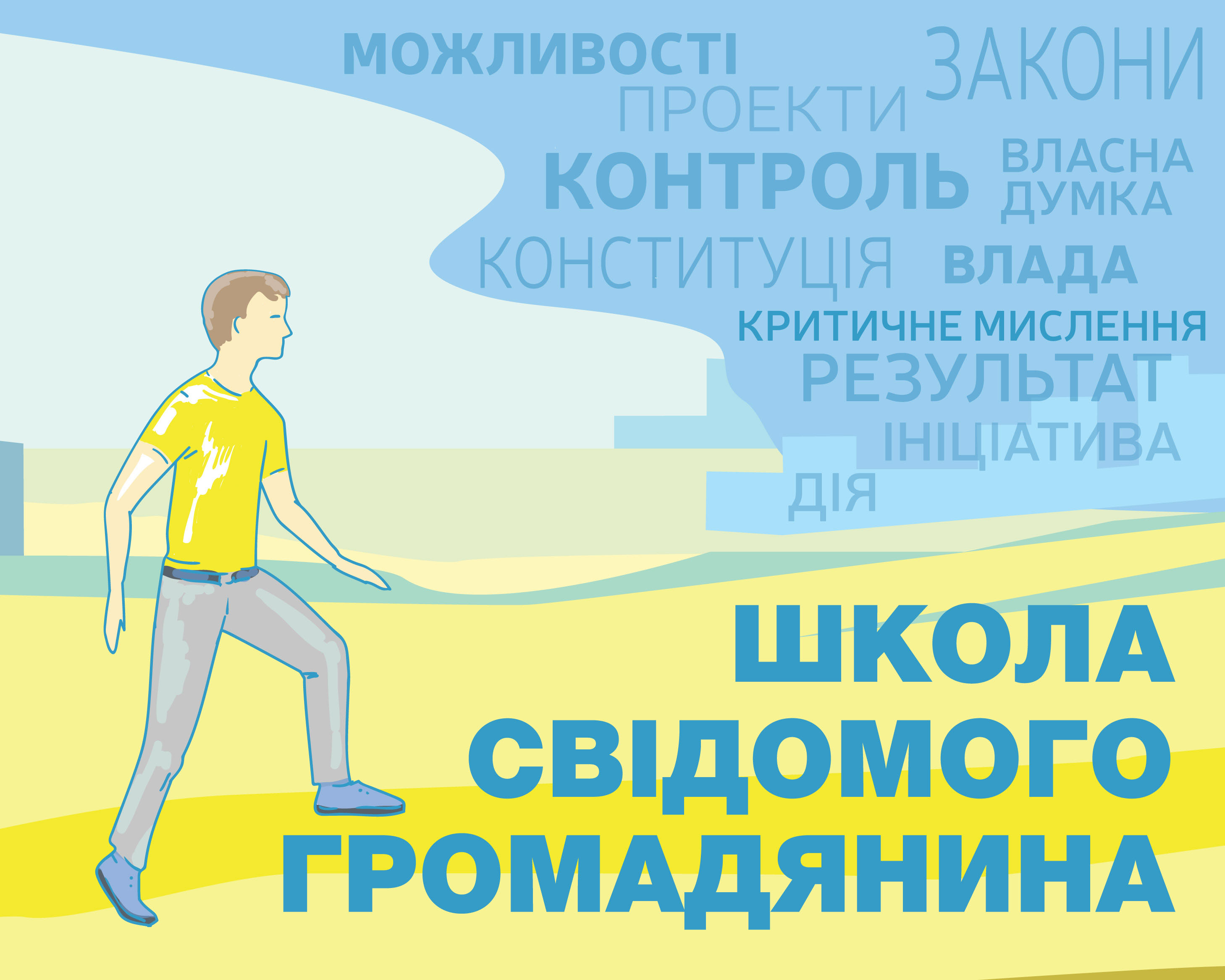Filtered by tag: Interaction with authorities
Online courses
The first experience of the Open University of Maidan (OUM) activities helped us to make several important conclusions. First of all, our team should apply different approaches and observe the issues from different perspectives to implement changes as it is hard to realize what will be needed in the process, what programs should be outlined and how to establish a systematic approach in one’s studying. Gained experience supported us in our decision to create “Concerned Activist’s School” educational program. This school is the result of facilitators', psychologists', activists', and leaders’ work. Implementing the experience of 26 events we had held all over Ukraine, we transformed the School into a branch of massive open online courses that provide a balanced and comprehensive base of knowledge about public activism, have straight structure and deliver simple and precise messages.
It is extremely crucial that “Concerned Activist’s School” as many other complex programs by the OUM is always changing and adopting concerning demands of the society and patterns of its development.
But how does it actually works? If you are interested in one of our massive open online courses and sign up for it, our platform automatically signs you up for all the online courses of this program.
Complex programs require not only the successful ending of the particular online courses but final assignment completing. When you end the course you may get your Certificate.
This part contains complex solutions of the issues in the civil society sphere. The main objective of the complex programs is to help us with an efficient understanding of the courses and experts effectiveness in answering complicated questions that are on your list. Topics of our courses may correlate with your particular problems and may be instrumental in the troubleshooting process.
The platform creates new opportunities for those responsible and active members of the communities who are ready to change themselves and their communities. Choose your program now and enjoy the education process on the OUM!
We often discuss our politicians, the Verkhovna Rada, deputies, but in fact we know not so much about how this whole political construction works. Some people have a superficial perception of the public administration processes, other people are partly familiar with the rights, responsibilities and tasks of deputies. And at the same time we pay their salaries from our own taxes and not understanding what we should receive in return. This situation should be corrected!
A new course “PRO Parliament: why do we need deputies” has launched at VUM online.
For whom is this course? This course is for everyone who realizes that without understanding the whole picture – how the Verkhovna Rada works – there will be no effective interaction between the government and the people.
The aim of the course is to help clarify the basic aspects of the Verkhovna Rada work, to consider the parliamentary “kitchen” and to demonstrate how citizens can influence the parliament.
The course is in Ukrainian. It is free and open to everyone.
The course was created with the support of the Konrad Adenauer Foundation Representation in Ukraine.
We have to pay taxes. When you start this course, you will be surprised at how much the average Ukrainian actually pays to the state. But in Ukraine, most people view this duty more as a bribe to officials. And unfortunately, this is partly true.
So what should be done to turn the "bribe" into a contribution to the common goal? What should be the tax sense in the democratic country?
This course is developed for a wide range of citizens who are interested to know how much, in what way and for what exactly they give their hard-earned money.
In this course you can find answers to the following key questions:
- Why should we pay taxes?
- What are the types of taxes, and why are there so many types?
- Are taxes really high in Ukraine?
- Why is the Ukrainian tax system inefficient?
- What do we propose to do to correct the situation?
The online course “How to choose an apartment building manager” contains 6 useful lectures that will help the co-owners of an apartment building to put it in order and provide its quality service.
If the company that maintains your house is inactive, you are not satisfied with the services, the condition of the house becomes worse – it’s time to change the situation and hire proactive professionals and effectively monitor their work. How to do this? It is discussed in the proposed course.
It is intended for co-owners of apartment buildings and representatives of condominiums, as well as managers who want to improve their knowledge in this area and get useful advice. The course will be interesting for everyone who wants to learn more about the manager activities, the features of this status, as well as get step-by-step instructions for hiring a manager for an apartment building.
In this course participants will learn:
- Who is the manager and how do they differ from the “old model system”;
- What are the requirements for the status of the manager, what services they provide and how they should act during the service performance;
- How to hire the manager of an apartment building;
- How to organize the meeting of co-owners quickly and successfully;
- How to conclude a contract with the manager and monitor its services;
- How to comply with all legal requirements when changing the manager and terminating the contract.
Fair and transparent elections are the key to the successful democratic development of the state. Every few years, citizens of Ukraine vote for their future, choosing the trajectory of the country's development through politicians whom they trust to represent their interests.
However, to achieve the election goals, candidates and political parties can use violations and manipulations: bribing voters, financing their campaign with "shadow" funds, using administrative resources, distributing fakes, and so on. All these actions affect the decisions of voters and the outcome of the election.
Therefore, to guarantee the elections to be transparent and the results show the conscious choice, citizens must have some information about candidates and parties throughout the election process. That is why it is important that journalists, bloggers, community activists, and other stakeholders be able to find and investigate election violations and communicate the results of investigations to the public.
The purpose of the course "How to investigate election violations" is to give information how to pursue high-quality investigations of violations of election law. The use of the acquired knowledge and skills will help to make elections in Ukraine more transparent and fairer, and the choice of citizens - conscious and responsible.
This course is for journalists, bloggers, public activists and all interested listeners who will monitor compliance with election laws in national and local elections.
After completing the course, participants will be able to independently find violations of election law, determine the subject of investigation, formulate a hypothesis and plan further work, deal with open sources, create briefs and prepare materials for publication in the media and social networks.
The course is in Ukrainian. It is free of charge and open for everyone!
We have developed this complex program to help each citizen quickly gain the knowledge how to build a real dialogue with the authorities: "What is being done? Why? Whose benefit? How does it improve the quality of our lives? "
The program includes the following courses:
- Public Control
- Community & Authorities: Productive Channels of Influence
- Activism in the Digital Sphere: Toolkit of E-Democracy
- Combating Corruption in the Government Procurement Sphere
- Public Contracts and Civil Society Monitoring
- Digital Public Registers
We and EdEra created two courses about Medical Information Systems – The Principles of Medical Reform with a help of eHealth – for doctors and administration.
Medical Informational Systems allow the patient to receive high-quality service from the doctors. It also allows controlling the effectiveness of the money and recourses use at the medical institutions and lessen potential corruption risks. eHealth allows creating one system to coordinate all health care activities – medical practice, medical institutions management, medical law, pharmaceutics and informational support for the patients.
eHealth implementation takes time and has many iterations. The first iteration is to involve all the centers and doctors that provide First Aid and Emergency services. So that we created these courses to standardize the approach of eHealth implementation in different regions of Ukraine.
This course was created by OUM and EdEra with support from U-LEAD with Europe and collaboration with Estonian Agency eGovernance Academy.
The course is in Ukrainian. It is free-of-charge and available for everyone.
Academic Integrity is a foundation of a high-quality education.
Higher Education in Ukraine is transforming and developing gradually. Implementation of the academic integrity principles in studying, teaching and science is a key element of higher education development.
We developed an online course about the Academic Integrity to let the students, lectors, scientists, managers, and directors of higher education institutions implement its principles in practice.
The course describes the following issues:
- What is academic integrity?
- What is plagiarism?
- How to avoid plagiarism in academic writing?
- What are the preconditions of creating an area of academic integrity?
- How to create an area of academic integrity in the university?
The Conscious Citizen School is a complex program of civic education launched by the founders of the Open University of Maidan and the Dialogue on Maidan initiative in January-February 2014. The purpose of this program is the formation of proactive civil society in the Ukrainian regions: assistance to local activists in search ideas and formation of teams that will realize different projects in their communities to change the situation for the better.
The program comprises 10 courses and covers various aspects of the development at the personal and institutional levels. All the courses are freely accessible and open to everyone.
All Ukrainian citizens are the clients of administrative services. People need to receive passports, driver’s license and other documents, register a place of residence, marriage, car, real estate, get building permits etc. The issuance of these documents are the administrative services. Most of the administrative services should be provided in single integrated offices – the Administrative Service Centers (ASC).
How to provide the best service in the Administrative Service Centers? How to deal with non-standard or conflict situations or create the best conditions for the citizens? This course answers all these questions.
The course is based on materials of the Single Requirements for the quality of ASC service, which are recommended by the Ministry of Economic Development and Trade of Ukraine. During the course participants can learn from the practical experience of administrative service managers and find out practical psychologist recommendations concerning communication and citizen service.
The course is in Ukrainian. It is freely accessible and open to everyone.
This online course is developed for public activists who wish to improve their knowledge and skills in public event organization. The participants will familiarize themselves with the important rules for successful implementation of creative campaigns. This course is interesting for all those who believe they are changemakers, but do not know where to start with, or how to proceed further in order to achieve their goals.
The course is in Russian. It is freely accessible and open to everyone.









